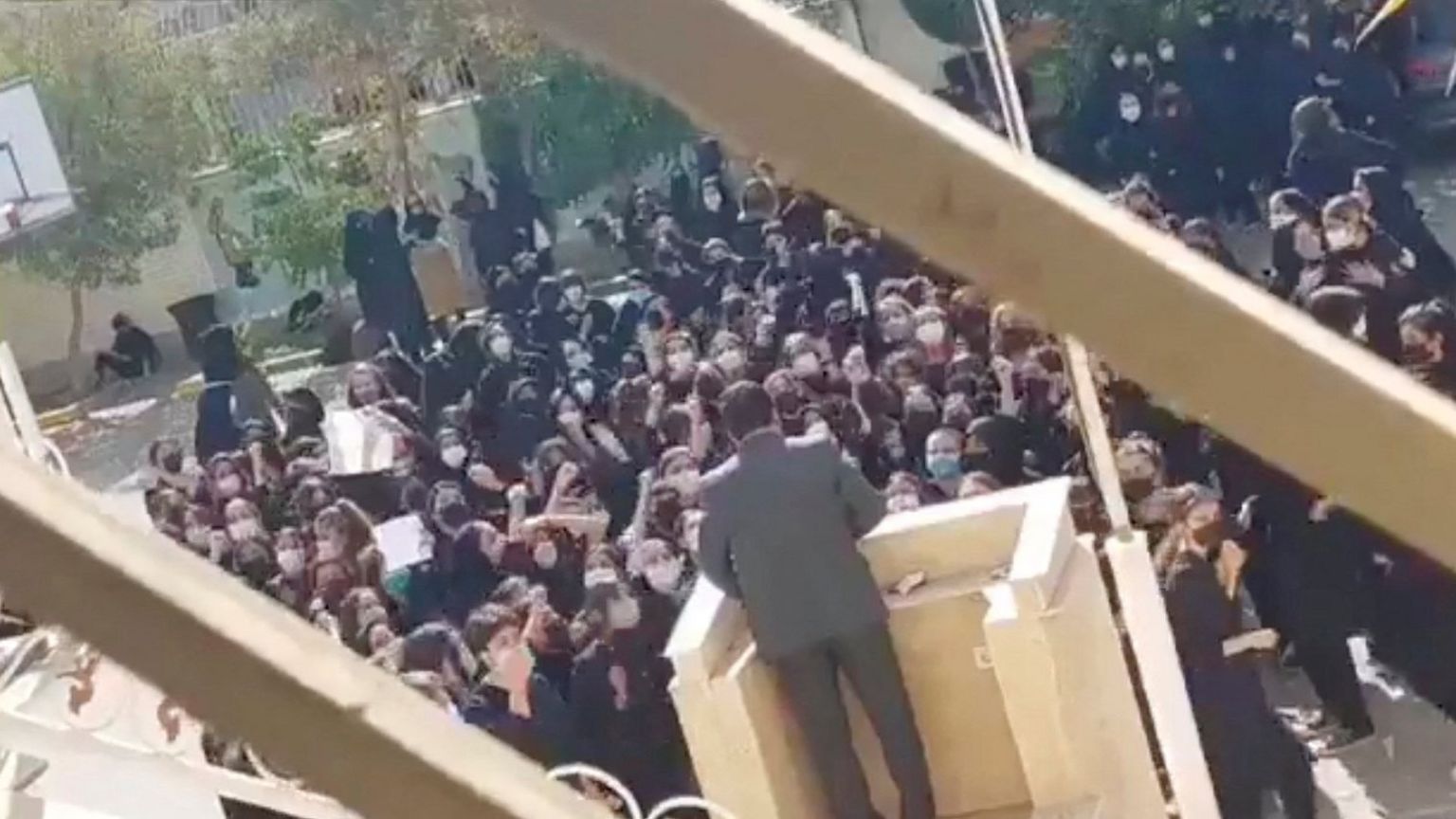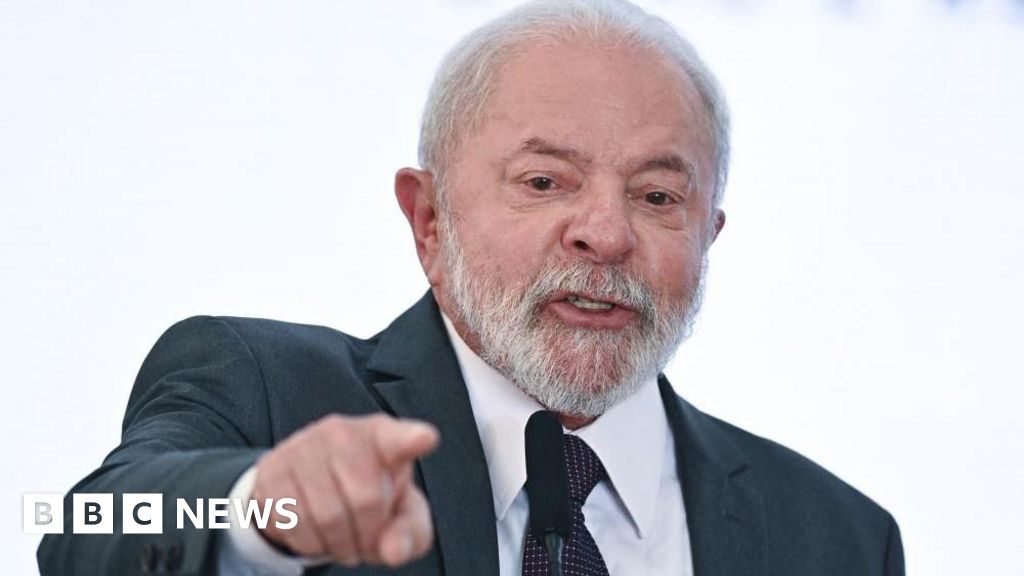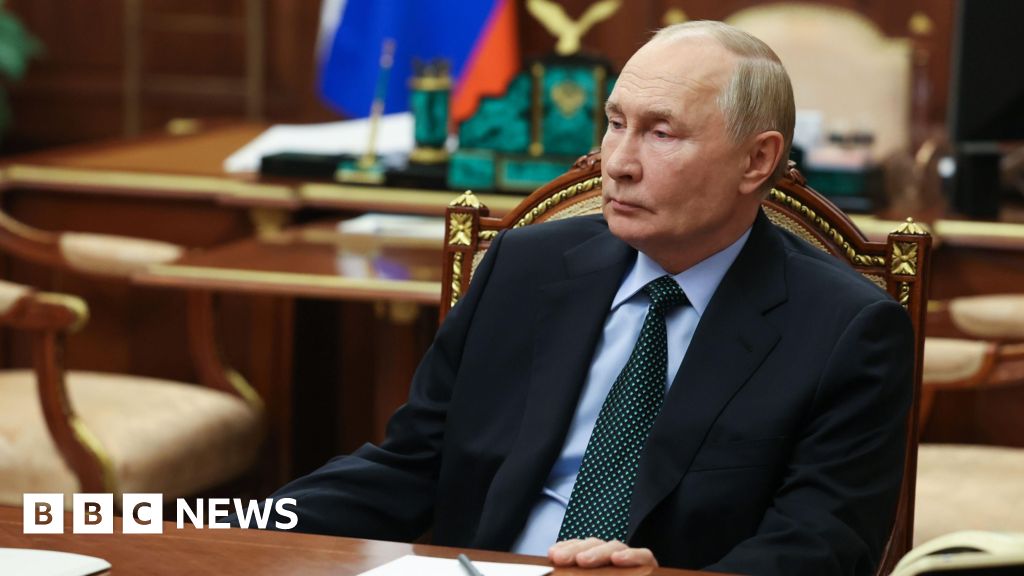ARTICLE AD BOX
 Image source, Reuters
Image source, Reuters
The member of the paramilitary Basij force had reportedly been asked by the school to speak to the girls
A new video posted online appears to show schoolgirls heckling a member of Iran's feared paramilitary Basij force, after anti-government protests sweeping the country spread to the classroom.
The teenagers are seen waving their headscarves in the air and shouting "get lost, Basiji" at the man, who had reportedly been asked to speak to them.
The Basij's volunteers have helped authorities crack down on the protests.
They erupted after the death of a woman detained for breaking the hijab law.
A girls' school in Iran brought a member of the IRGC-run Basij paramilitary to speak to students. The girls welcomed the speaker by taking off their headscarves & chanting "get lost, Basiji".
Teenage girls have been at the forefront of protests for days.pic.twitter.com/kvskgB8qas
The BBC is not responsible for the content of external sites.View original tweet on Twitter
Other footage circulated on social media seems to show an elderly woman clapping as unveiled schoolgirls, also dressed in black uniforms, chant "freedom, freedom, freedom" at a protest on a street.
In a third video, reportedly filmed in the city of Karaj, schoolgirls are seen screaming and running from a man, thought to be a member of the security forces in plainclothes, who is driving a motorcycle along a pavement.
Video shows schoolgirls running away in a panic while in the background motorbike engines roar with a man shouting “get lost”. Security forces use bikes to chase, beat protesters. Young schoolgirls been protesting across Iran. #مهسا_امینی pic.twitter.com/7VBA9HmMNr
— Khosro Kalbasi Isfahani (@KhosroKalbasi) October 4, 2022The BBC is not responsible for the content of external sites.View original tweet on Twitter
The unrest was triggered by the death of Mahsa Amini, a 22-year-old woman who fell into a coma hours after being detained by morality police on 13 September in Tehran. She had allegedly failed to cover her hair sufficiently. She died in hospital three days later.
Her family has alleged that officers beat her head with a baton and banged her head against one of their vehicles. The police have denied that she was mistreated and said she suffered a heart attack.
The first protests took place in north-western Iran, where Ms Amini was from, and then spread rapidly across the country.
Young women have been at the forefront of the unrest, but it was not until Monday that schoolgirls began participating publicly in large numbers.
The BBC has mapped how the death of Mahsa Amini sparked widespread unrest in Iran
It came a day after security forces briefly besieged the prestigious Sharif University of Technology in Tehran in response to a protest on the campus. Dozens of students were reportedly beaten, blindfolded and taken away.
Monday also saw the Supreme Leader, Ayatollah Ali Khamenei, break his silence on the unrest and accuse the US and Israel, Iran's arch-enemies, of orchestrating "riots". He also gave his full backing to the security forces, which have been accused by human rights groups of killing dozens of people.
On Tuesday, there were reports that the death toll resulting from clashes between security personnel and anti-government protesters in the south-eastern city of Zahedan had risen to 83.
Zahedan is the capital of Sistan Baluchistan province, which borders both Pakistan and Afghanistan, and has a sizeable Sunni Muslim population.
Authorities have said the security forces were attacked by armed Baluchi separatists - something the imam of the city's biggest mosque has denied.
The violence erupted on Friday, when protesters surrounded a police station and officers opened fire.
Tensions in the city had been compounded by the alleged rape of a 15-year-old girl by a police chief elsewhere in Sistan Baluchistan.

 2 years ago
19
2 years ago
19








 English (US)
English (US)